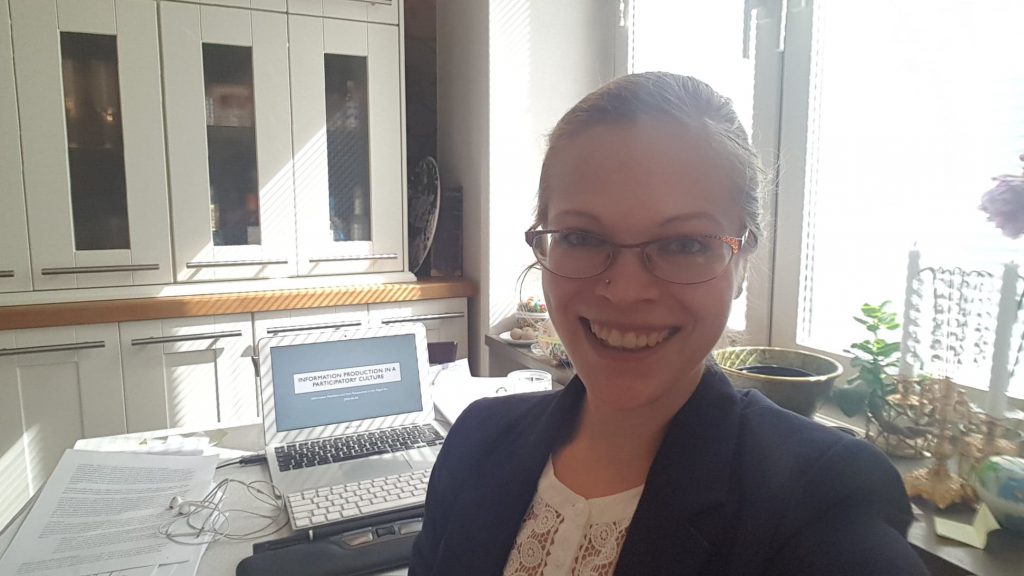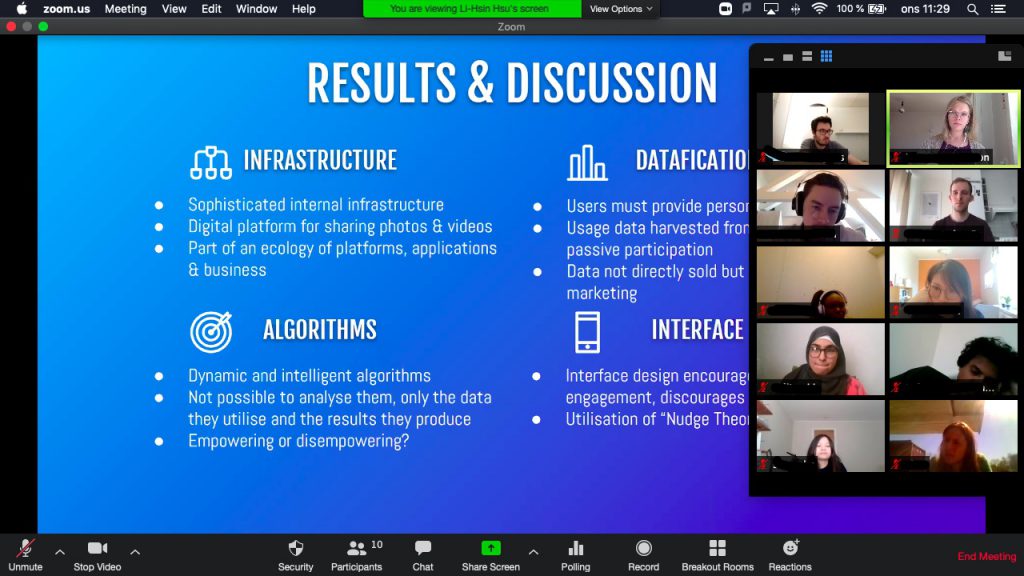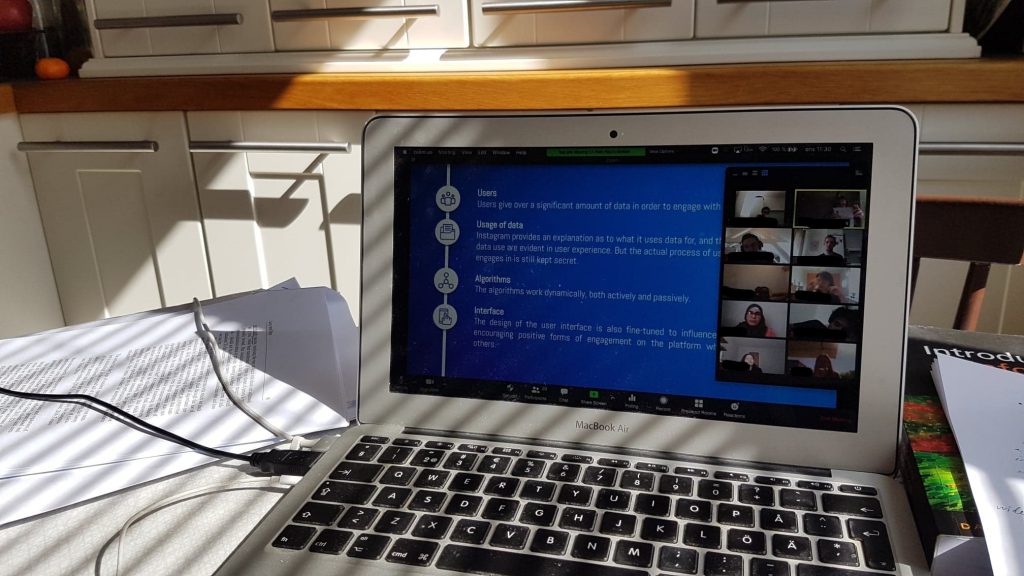Last week I got the opportunity to sit down with Ina-Maria Jansson over Zoom, Phd-student and course coordinator for the course Information Mediation and User Perspectives in the Digital Era, that ended a few weeks ago.

What is your research background and how did you find Digital Humanities as an educational and research subject?
With a background in archival science and collection management I did find the actual step over to digital humanities less of a step and more of a gradual fade of shifting focus from analogue materials and collections to digital ones. To be honest, I am not sure myself if I actually am a Digital Humanist; more like a humanist interested in the digital conditions of information.
How do you use digital tools or digital methods in your own research?
My main use of digital methods is to find different clever ways to collect and organize my source material. Some examples are different user generated content and metadata from online platforms, like digital photographs, user comments and online forum posts. I harvest material from digital platforms and have used Python to collect textual content. A future goal, besides finishing my thesis, is to level up my Python skills, but also to become more successful in implementing digital analysis methods.
What was for you the most successful or meaningful part of the course?
It is hard to single out a specific part. For me, the most valuable have been to follow the students’ progress throughout the course and learn how their understanding of digital information environments have developed, but also how they have learnt more about what Information Science is and why this field is interesting from a digital humanities perspective. I am still disappointed that the whole course had to take place online so that I never had the chance to meet the students in real life, but I also realize I am not the only university teacher with that feeling this weird spring semester.

What would you say is the core of the course?
I believe that knowledge of the impact of information infrastructures on information accessibility as well as creation, presentation, dissemination and use of information are necessary for a digital humanist. Therefore, I hope the students will take with them a developed understanding of the importance of studying information within the frames of information science. In other words, I want them to gain insight of how putting information in the center of studies can help reveal interesting truths about contemporary society and understand why it looks like it does and why things work as they do.
Read this blog post to learn about a seminar and presentation about critical evaluation of interactive digital platforms that the students had during the course.



